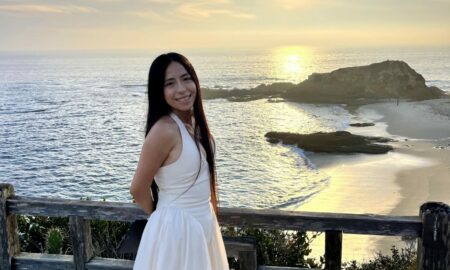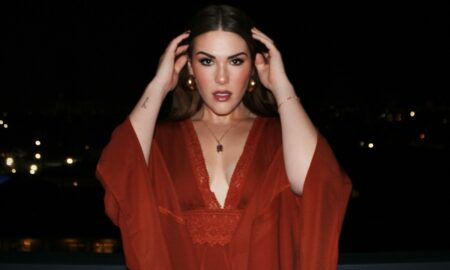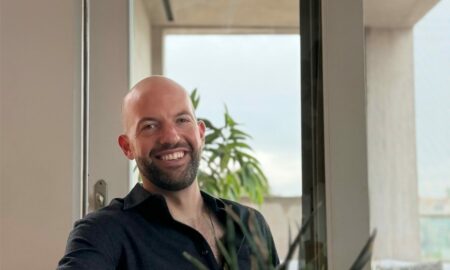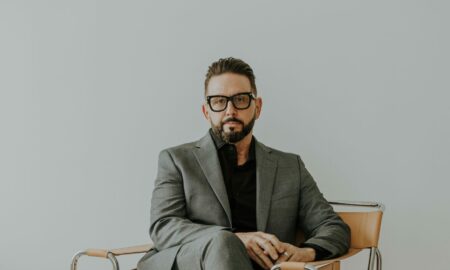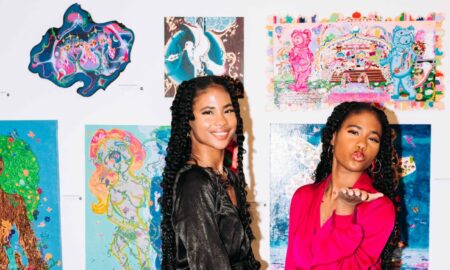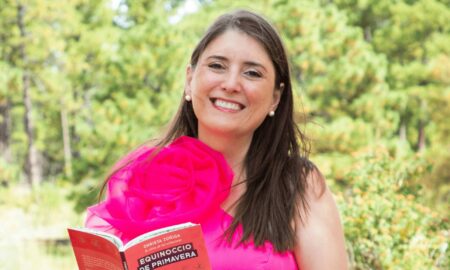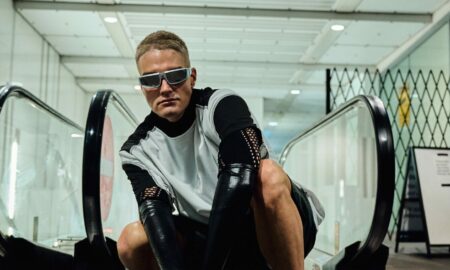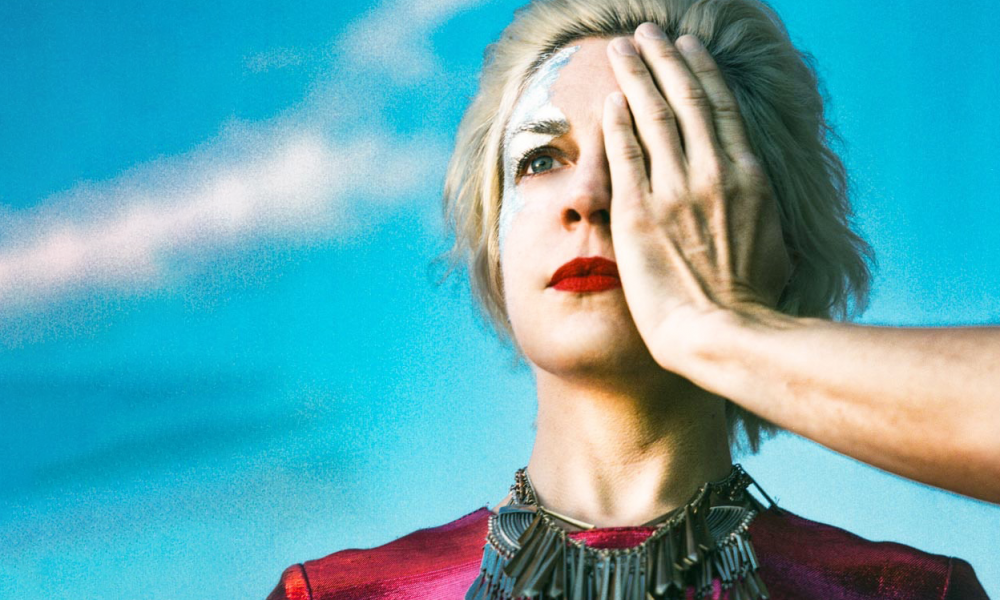

Today we’d like to introduce you to Amy Merrill.
Amy, please share your story with us. How did you get to where you are today?
I grew up in Santa Cruz, California, at the intersection of the tech boom, progressive activism, nature and the arts. As a kid, I bought rainforest land with my allowance at ten, became a vegetarian at 11, and volunteered in arts education. In hindsight, I think I was compelled to “pay it forward” since my life seemed humble but pretty blessed. As I got older and found myself to be a problem-solver: nothing seemed more worth my time than big issues like social justice, environmentalism, education, and I ultimately landed in a career in social impact.
My other constant is music, and I’ve been singing and playing piano since I can remember, as a choir kid and then in bands. I love singing the inner “crunchy” lines of choral music and losing myself in beautiful washes of sound that lean on natural acoustic palettes like voice and piano. It’s always been a place of release for me, and more recently a place of embodiment and activism via my post-apocalypse space folk band Formerly Alien (formerlyalien.com), which I started two years ago with my partner Andy Barr.
In the last 10+ years, I’ve found a sweet spot where I can be creative, leverage technology, and also continue to move the needle on these big issues that need our attention. I moved on from intense nonprofit work in social justice, anti-trafficking and reproductive rights (plancpills.org) to helping build a crowdfunding platform that empowered individuals in raising $4M for causes. Here I realized there was an opportunity to connect people to their impact, and in 2016 I co-founded a travel startup that guided 600+ people on transformative impact trips through Central America (wejourney.co). Most recently, I turned my passion for storytelling and digital tools to clients, building websites and creative communications that promote conscious capitalism (eyesopendesign.com). My partner and I like to say that there are no “bad people,” just good people operating on bad information, which was what inspired my curiosity back to digital storytelling and design.
From a spiritual standpoint, my priorities have changed slightly too, in that I’m no longer always on the front lines. There are a few issues that I still actively work on, like Plan C, but I’m more interested in collaborating on bigger movements in culture change, personal development and consciousness evolution. After so much time telling people what to care about, I now see that big changes must start from within. For me, it starts with recognizing the complex and sometimes contradictory human experience, healing so I can offer healing to others, and showing up in truth and love every day as a higher priority than any “doing.” My friend Azzurro recently called it “being a channel for divinity:” I’m trusting my gut, supporting those around me in ways we can build a happier, healthier, more just world: and then acknowledging that it’s all a grand experiment anyway!
Great, so let’s dig a little deeper into the story – has it been an easy path overall and if not, what were the challenges you’ve had to overcome?
Ha! Does anyone say yes to this question?
Sure, my obstacles have been my greatest teachers. My big “aha” moment in re-framing obstacles happened a few years back while receiving threats of lawsuit for a supposed IP infringement in the impact travel company I’d just launched. My overriding feeling at first was, ‘why me?’ I felt like the victim of my circumstances instead of the creator of them, I was only trying to do good in the world, why was it so hard?
And yet through this difficult experience, I learned the lesson that the rocks aren’t in the road, the rocks ARE the road. There is no reality where you kick all the “rocks” out of your proverbial startup/relationship/personal growth road, THEN you get to the main point: anything that’s big and meaningful enough will have big challenges too, and it is precisely in dealing with these challenges that you prove the strength, validity, and commitment to your big idea. You show up as a great leader not in the easy times but in times of strife, you fight for something to exist to the degree that you believe it can and should, you are who you are because of what you were able to overcome, not because of what was handed to you.
Ultimately, almost miraculously, we were able to resolve the threat of lawsuit outside of any legal action, and I was able to continue building the company with my co-founders. The other big lesson here was recognizing that, in any given situation, there were things I could control and things that I couldn’t. All I could do was work hard and in integrity with the factors that were under my control, and the rest lay in the hands of other people, fate, god, however you view it.
Eyes Open Design – what should we know? What do you do best? What sets you apart from the competition?
Eyes Open Design is a creative communications and web design studio based here in Los Angeles, founded with my partner Andy and inclusive of a handful of great on-call designers and developers. We take a full-spectrum approach, often working with clients through developing their initial brand identity and voice, to co-creating new visual content and copywriting, to synthesizing everything into a beautiful new website. I think of us as hands-on collaborators, here to share the load and elevate a story into something unique and powerful: if you’re building or running an organization and you realize you need a website or a brand refresh, you also realize that it’s going to be a metric ton of work, and you need a partner. We not only build the “bones” of a website, but we co-create the story, architecting information, dialing in the user experience and calls to action, writing copy and treating images, all with a beautiful clean aesthetic. We care a lot. We also laugh a lot.
Because of our background and network, we work primarily with “conscious” or purpose-driven entrepreneurs and small businesses. We build on top of platforms like Squarespace and Shopify, with heavy customization and purposeful design, so that each site is custom and unique, and clients can easily manage it themselves at the end. I’m excited about so many of our recent projects, but just a few: Holly Anne Mitchell (hollyannemitchell.com), a brilliant entrepreneur who’s reframing the dental industry with compassion and self-care; Andrew Horn (itsandrewhorn.com) whose projects include Junto men’s groups, Tribute video montages, and my favorite podcast Whats’ the Big Idea?; RipplEffect (rippleffect.co) engaging big brands in social impact; Camera Ready (cameraready.co) personal development meets media training; and of course Plan C (plancpills.org) – a campaign for access to abortion pills in the US, which is revolutionizing the way we think about self-care in reproductive health. I built this site in 2016 and it’s grown to 50,000 hits per month and a national movement of activism!
What moment in your career do you look back most fondly on?
When I was running Journey, we built more than 150 homes over two years with nonprofit partner TECHO (techo.org) across Nicaragua, Guatemala, Mexico, Costa Rica, El Salvador, and Colombia. Today more than 1,000 people live under these roofs instead of whatever they had before: corrugated metal lean-tos, mud huts, garbage bags and found lumber. It’s less a feeling of pride and more a feeling of heart expansion, thinking about my time with some of these families during the build, and how their lives are better because they have a door to lock and a floor under their feet. I co-created that company in full acknowledgment that our service work was not a complete solution to the massive and complex problem of Poverty, but an opportunity for small actions and incremental changes that build empathy for travelers and local families. It was a chance for people to show up with their full selves and remember we’re not that different. I don’t even know if I believe in pure “solutions” anymore: even the greatest nonprofits are ultimately running experiments, and years later circumstances will change and situations will evolve and they’ll need to change the way they make “impact.” Which is why nonprofits need even more leeway than startups to test ideas, learn from them, pivot and iterate, try something new—yet they are held to higher standards than for-profits, even though they’re typically solving the most complex problems we have! This is a conversation we need to be having more.
Another moment of recognition was in hearing my filmmaker friend Jenni Morello talking about her recent trip to Phnom Penh: we met during filming of a PBS documentary called Half the Sky, and one episode featured an episode on sex trafficking in Cambodia. In 2012, brothel culture was rampant: young men would visit brothels as a rite of passage or a weekend activity, and they’d spend a proportionally shocking amount of money on it. This drove demand and led to trafficking and exploitation of young vulnerable women to keep brothels filled. Today, Jenni’s local contact told her it’s changing: people don’t go to brothels in the same way, trafficking police are trained and highly engaged, young people are skateboarding or going to cafes on weekends, gender relations are shifting. This blew me away: in less than ten years, at least anecdotally, culture has shifted in ways that move toward social justice, equality, and respect. That is what keeps me going and gives me hope.
Contact Info:
- Website: eyesopendesign.com
- Phone: 9177273259
- Email: [email protected]
- Instagram: instagram.com/amyjmerrill
- Facebook: facebook.com/amyjmerrill
- Twitter: twitter.com/amyjmerrill





 Image Credit:
Image Credit:
Main photo is taken by Emma Marie Jenkinson, instagram.com/emmamariej_
Tom Kubik (LIVE), Eric Halvorsen (stage).
Suggest a story: VoyageLA is built on recommendations from the community; it’s how we uncover hidden gems, so if you or someone you know deserves recognition please let us know here.












